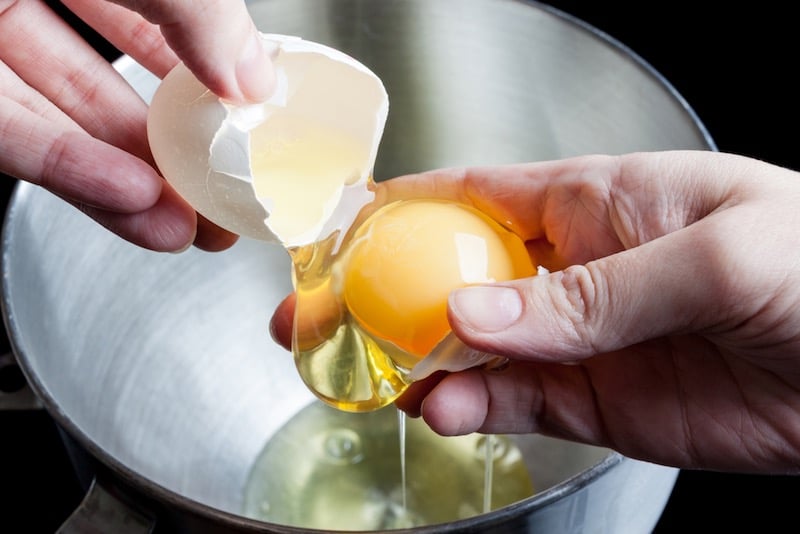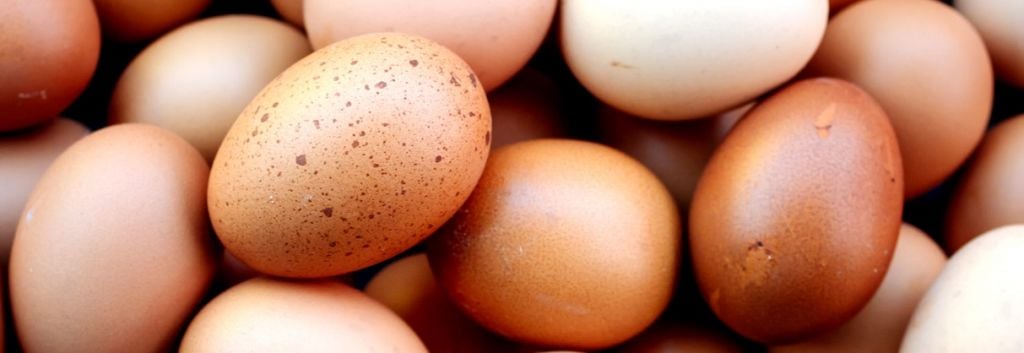Scientists at the University of Edinburgh have produced high-quality human proteins in chicken eggs, a method that could be significantly cheaper than the current standard.
The researchers engineered the DNA of chickens to make them produce human proteins in the egg white, from where they can be easily purified. In a study published on the journal BMC Biotechnology, they reported the production of two proteins with the same high-quality standards than using current methods, and with no side effects to the chickens.
Chicken eggs have traditionally been used to produce vaccines by infecting them with viruses. For the first time, this new method allows using eggs to produce human proteins more efficiently and affordably than using current methods.
“Bacteria are the cheapest, but they aren’t capable of producing the more complex proteins like antibodies, and mammalian cells are very expensive to use as they require more specialist facilities and growing conditions that are very expensive,” Lissa Herron, researcher at the Roslin Institute of the University of Edinburgh and author of the study, told me.
“We hope that by using animals that already make large amounts of protein in easily accessible formats like milk and eggs that we can reduce the overall cost of production of these drugs. High-spec chicken facilities can cost 10-100 times less than a mammalian cell culture facility.”

You might be pleased to know the chickens were not harmed in the process. Their DNA is engineered so that the drugs are only produced in the egg white, and the researchers make sure that all the proteins they produce are not similar enough to those of chickens to affect them.
There have been past attempts to use eggs and milk to manufacture drugs, but they had not managed to produce proteins at a level high enough for commercial production. The group was able to produce a single clinical dose of the drug from 3 eggs.
Herron believes the biggest potential of the technology is to produce proteins with modifications that chickens can do naturally whereas mammalian cells need to be heavily engineered. In the study, the scientists produced interferon alpha 2a, a drug used to treat hepatitis and certain types of cancer, and CSF1, a protein being investigated as a therapy to repair damaged tissue.
So far, the researchers aim to use this method to create drugs for use in lab research and animal health. According to Herron, manufacturing drugs for human use is “certainly a long-term goal, but we would likely need to work with one or more partners to make it happen as we do not have the manufacturing capability right now.”
The group is now working on producing more complex proteins, such as antibodies, which increasingly dominate the drug market. Herron stated they still have to improve the yield of antibody production to compete with mammalian cells.
Images via Shutterstock





